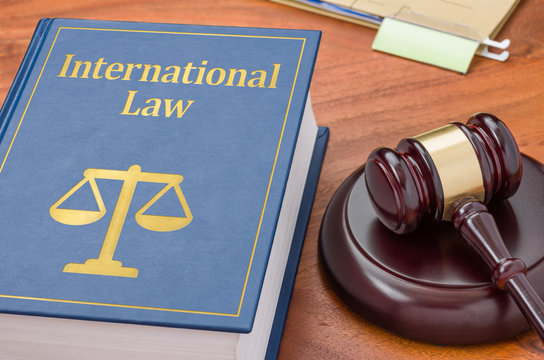This blog accompanies our expert webinar available here.
The conflict between Russia and Ukraine took a significant turn on 24 February 2022, with Russia’s military invasion of the Ukraine, an act that significantly escalated the conflict, and which was labelled by the United Nations General Assembly as an act of aggression. The ongoing conflict has raised many questions and spurred much discussion on many issues of international law, including compliance with the laws of armed conflict, trans-national commercial arrangements and compliance with newly imposed sanctions, the impact of human rights norms on the international commercial landscape, and various options and proposals for prosecuting high-level military and political leaders for international crimes. In this webinar, our Dr Felicity Gerry KC and Yuliya Mik together with 2 high profile academic international law experts Kevin Jon Heller and Melanie O’Brien discussed some of these pressing international legal issues.
Firstly, Ms. Yuliya Mik (Barrister, Greens List Barristers and PhD Candidate, The Hebrew University of Jerusalem) began by providing an overview of the international legal landscape as it relates to the war in Ukraine. In the realm of international criminal law, the 4 core international crimes (genocide, crimes against humanity, war crimes and the crime of aggression) have all been invoked as the subject of actual or anticipated international legal proceedings, in both domestic and international courts. International criminal proceedings have been initiated by the International Criminal Court, and international legal proceedings invoking state responsibility have been initiated by Ukraine against Russia in the International Court of Justice. In addition, a number of international organisations have reacted to Russia’s invasion of Ukraine; the Council of Europe took the unprecedented step of suspending Russia’s membership in the organisation, the United Nations Human Rights Council did the same, the United Nations General Assembly labelled Russia’s actions an act of aggression. States, both individually and in groups, have imposed a range of economic sanctions on Russia and its citizens, and corporations and businesses have also reacted by limiting their business activities in Russia. While the enforcement of international law may face many challenges in this unique situation, there have undoubtedly been a multitude of reactions to this event of major international significance, both legal and extra-legal. The outcomes remain to be seen.
Prof. Kevin Jon Heller (Professor of International Law and Security, University of Copenhagen (Centre for Military Studies), Professor of Law, Australian National University, Special Adviser to the ICC Prosecutor on International Criminal Law Discourse, and Academic Member, Doughty Street Chambers) addressed one area of the war against Ukraine that has been gaining increasing attention: calls for an international tribunal to prosecute Russian President and other senior Russian political and military leaders for the crime of aggression. There are three models most prominent in current discourse: a treaty-based tribunal (such as the International Criminal Court), an ad hoc tribunal endorsed by the United Nations General Assembly (such as the Special Court for Sierra Leone), or a hybrid internationalised tribunal embedded in the domestic courts of Ukraine (such as the Kosovo Special Chambers). Each of these models faces certain advantages and drawbacks, concerning issues such as immunities from prosecution, support from the international community, logistical considerations, and the possibility of enforcement of jurisdiction. Prosecutions for the crime of aggression have been extremely rare. However, the possibility of a historic prosecution for the crime of aggression has gained renewed attention in the wake of the war against Ukraine. Discussions in both popular discourse and scholarly circles continue regarding the mechanics and practicalities of how this might be done.
Dr. Melanie O’Brien (Associate Professor of International Law, University of Western Australia Law School) provided an overview of some of the key issues arising in international humanitarian law (also known as the law of armed conflict) in the war against the Ukraine. As has been widely reported, Russia has conducted numerous attacks against civilians and civilian infrastructure. Sadly, these attacks have not abated, with ongoing missile strikes continuing, targeting Ukraine’s energy infrastructure all around the country, including in areas located far from any front lines or active combat, making them extremely difficult to justify as attacks that meet the fundamental requirement of military necessity. Under the rules of international humanitarian law, attacks targeting civilians and civilian infrastructure, such as those that continue to be reported, are strictly forbidden. As well as the protection of civilians generally, international humanitarian law contains specific protections for women, including specific protections from rape and sexual violence. Unfortunately, this, too, is an area of international humanitarian law that continues to be violated in armed conflicts around the world, including the war against Ukraine.
Lastly, Dr. Felicity Gerry KC (International Legal Counsel, Greens List Barristers, Melbourne and Libertas Chambers, London and Professor of Legal Practice, Deakin University) provided a crucial reminder of the importance of the legal profession and legal practitioners to international crises such as this one. The war against Ukraine is a matter for international concern and is challenging the very rules-based order on which the post-World War II era has been built and sustained. In this context, the role of lawyers in upholding the rule of law should not be forgotten. In the aftermath of major international events there have been multiple legal processes established relating to truth-finding, criminal prosecutions, and re-establishment of the rule of law, providing numerous opportunities for legal professionals to engage in important international law proceedings. The role of legal practitioners in international criminal proceedings, to give just one example, has been crucial in upholding the highest standards of criminal justice and the rule of law in cases taking place in both international tribunals and domestic courts around the world. The provision of sound legal advice regarding investigations in post-conflict contexts, often taking place in politically charged contexts, can also be crucial in upholding the integrity of such decisions and their associated proceedings. The contribution of legal practitioners to upholding the core values of the rule of law should therefore not be underestimated.
Drafted by Yuliya Mik and Felicity Gerry KC.


